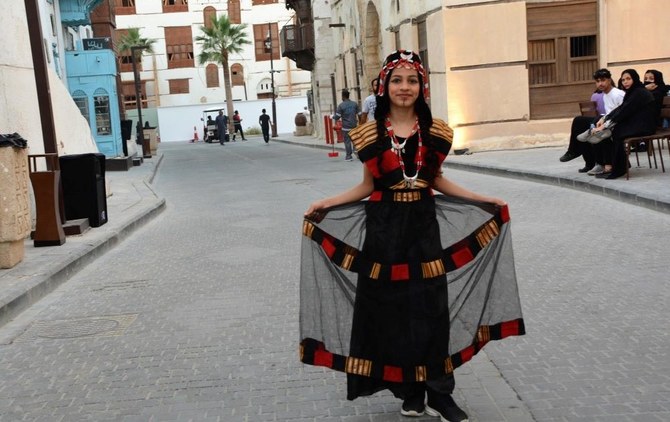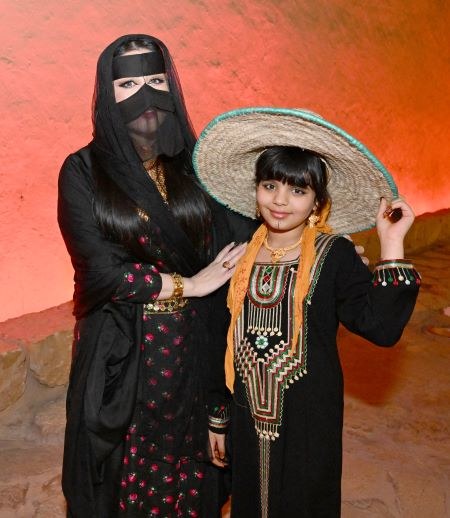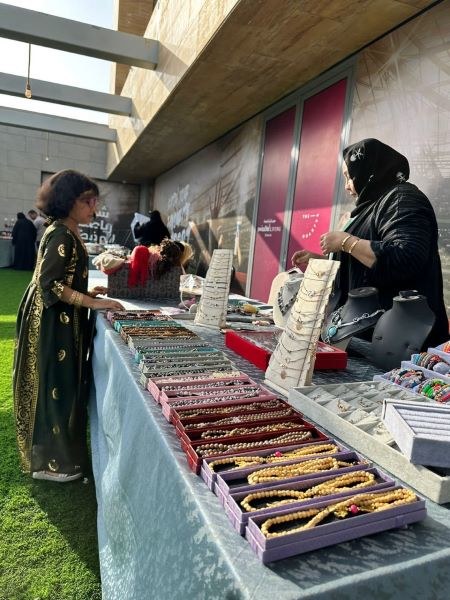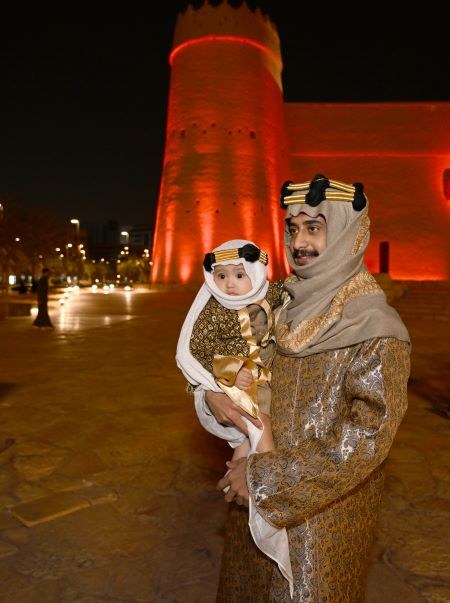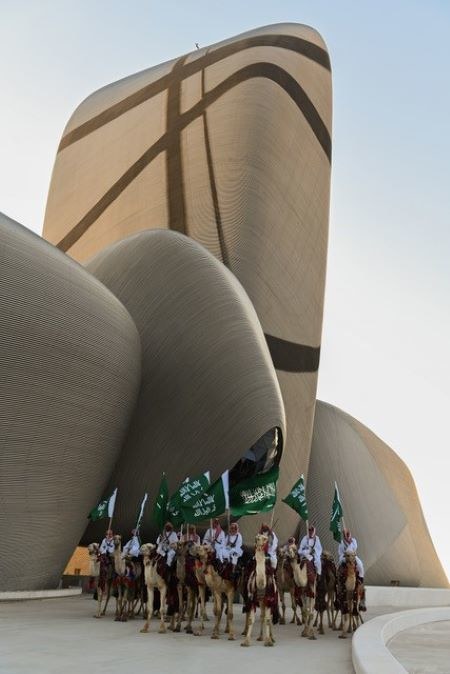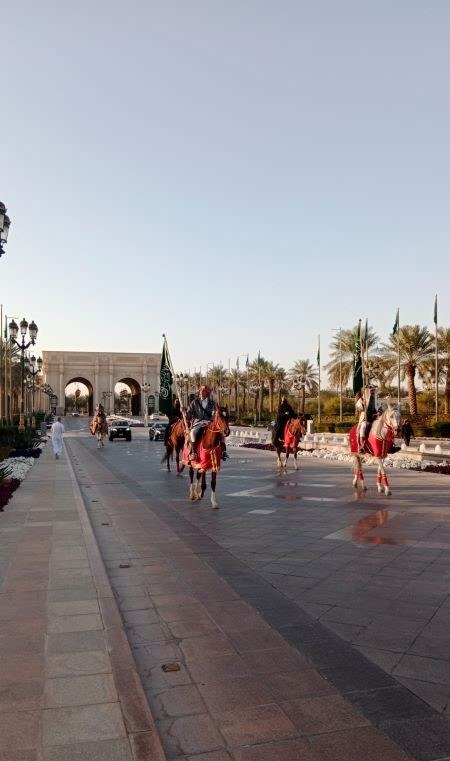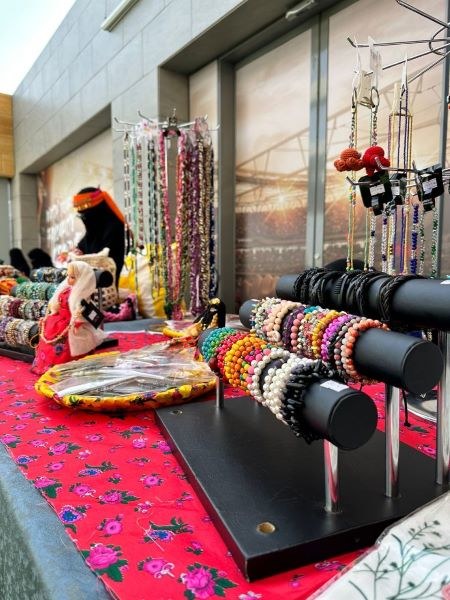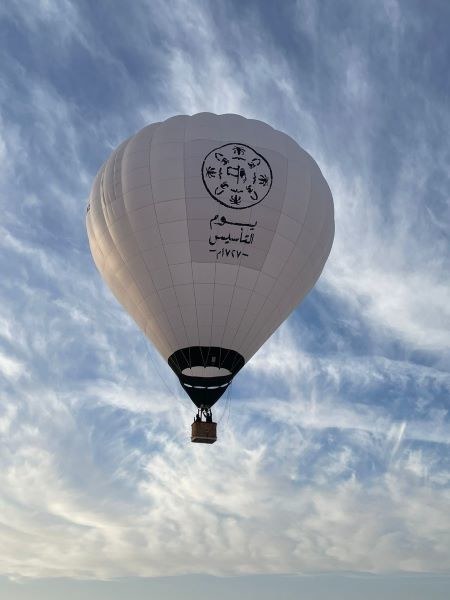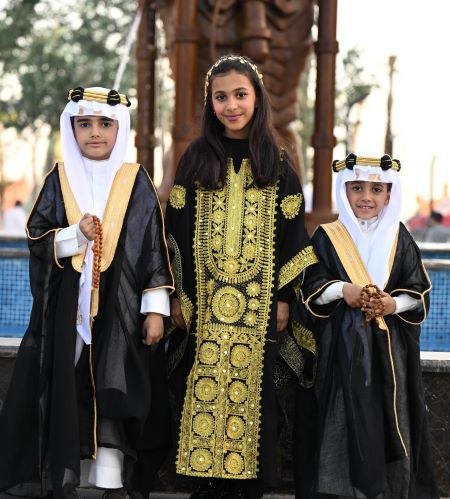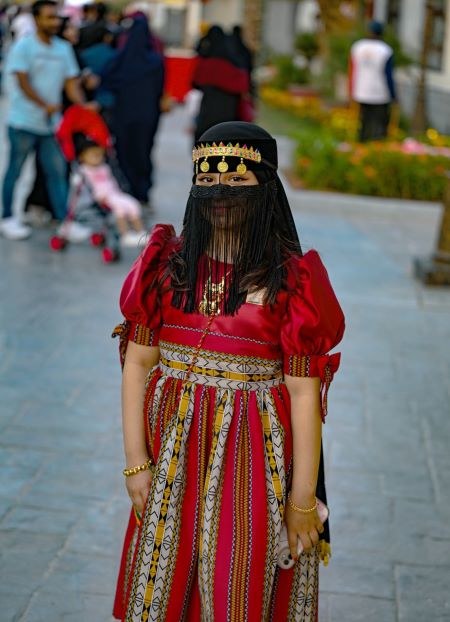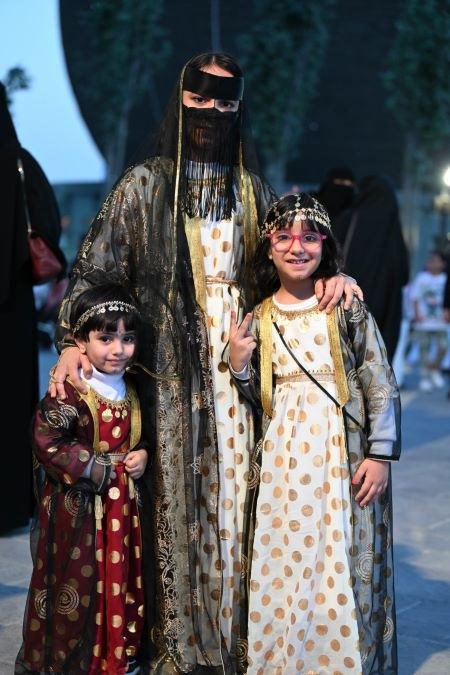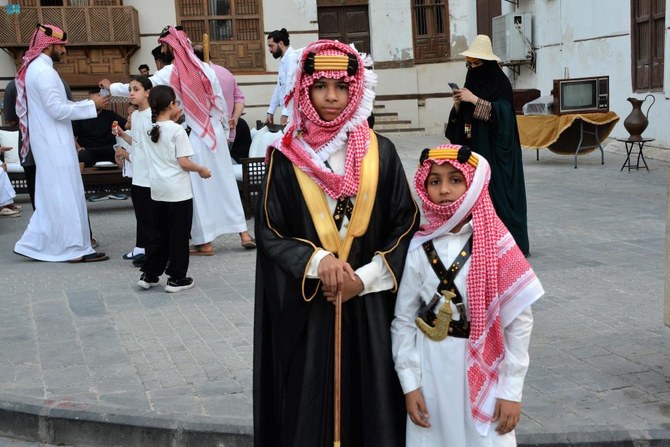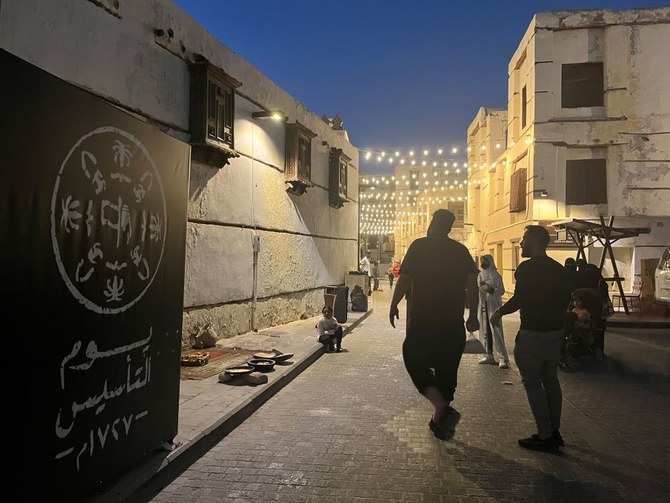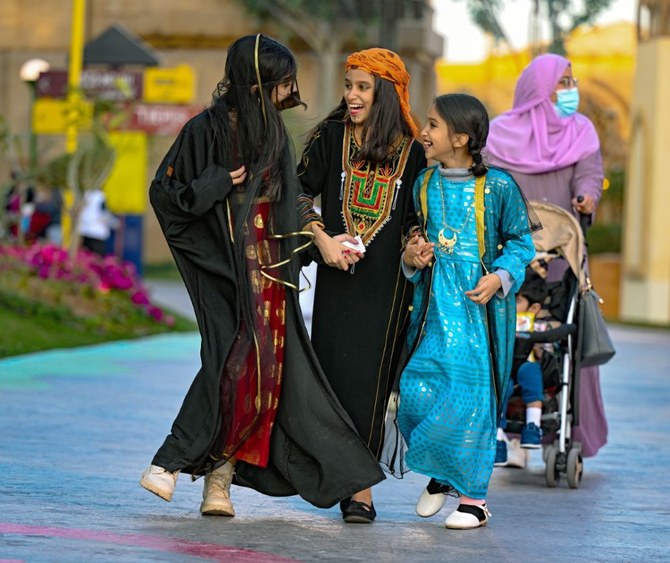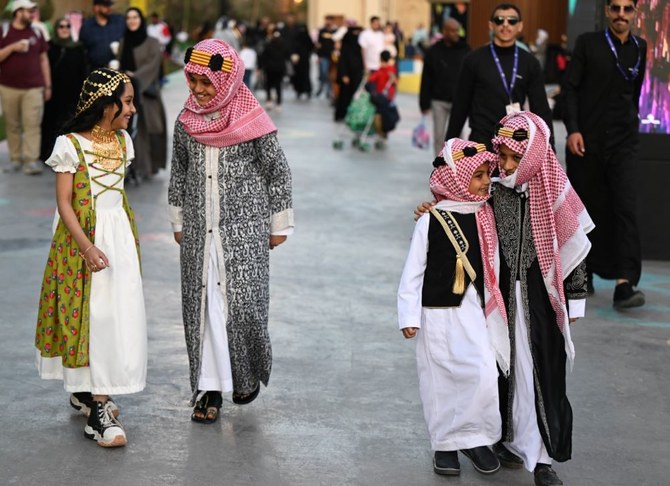JEDDAH/DHAHRAN/RIYADH: Saudi Arabia is marking its second Founding Day celebrations with events, activities and a four-day holiday.
Founding Day — celebrated on Feb. 22 to commemorate the country’s founding by Imam Mohammed bin Saud — was declared a national holiday last year following a royal decree by King Salman.
Cultural and artistic events are taking place across the Kingdom.
Nationwide competition
The UN in Saudi Arabia is celebrating Founding Day by launching a photography competition under the theme “People and Property” to highlight the Kingdom’s culture and heritage.
Organizers suggest images of people wearing regional and traditional attire from different parts of the Kingdom, or of younger and older generations, cultural heritage and modern architecture, or regional landscapes.
Local photographers have to submit four high-resolution images taken with a digital camera.
Photographs can be taken in any style or format and can be in black and white or color. For printing purposes, images must fit the required format of 3:2 ratio, in portrait or landscape. The minimum file size is 1MB and the maximum file size is 12MB.
All entries must be original and it is the photographer’s responsibility to ensure that no copyright infringement took place.
Each entry will be judged individually. All entries automatically give the UN in Saudi Arabia the right to reproduce images for publication by the UN. The copyright is retained by the photographer.
Winning photos will be used in the UN annual country report, and a selection of the 10 best images will be showcased on the UN Saudi Arabia website as a virtual exhibition. Winning images uploaded for the contest may appear in UN materials.
The UN World Tourism Organization will award 10 winners a scholarship to attend a course at the UNWTO Tourism Online Academy. The UNWTO will also showcase the best photos at special events, promote them on their social media platforms and some images may appear in their selected publications.
To submit, send an email to: [email protected] with full contact information and the images. Visit www.SaudiArabia.UN.org for more details.
Riyadh
The Kingdom’s capital rang in Founding Day celebrations with parades and live performances in locations across the city.
Families dressed in traditional attire gathered to watch the colorful parades and performances, while streets filled with celebrations.
Al-Kindi plaza in the Diplomatic Quarter hosted a heritage tent featuring a traditional souq, live performances and local dishes for visitors to sample on Wednesday. The event will continue on Thursday.
The Ministry of Culture held a musical theater performance highlighting the history of Saudi Arabia in Princess Noura University’s Red Hall. The show premiered on Wednesday and will continue until Feb. 27.
The ministry also hosted a parade at the intersection of Prince Turki Bin Abdulaziz Al-Awwal Road and King Salman Road in Riyadh featuring Arabian horses, traditional attire and colorful performances highlighting three centuries of the Kingdom’s history.
Al-Liwan, a cultural event featuring traditional markets, informative seminars and historical theatrical performances, was staged in 14 locations across the Kingdom simultaneously, including Riyadh, Arar, Sakaka, Tabuk, Hail, Buraidah, Dammam, Madinah, Taif, Jeddah, Al-Baha, Abha, Jazan and Najran.
In Riyadh, it will continue until Friday.
The historical site Diriyah hosted a Founding Day parade and other family activities in four locations, including JAX Park and Riyadh Skate Park.
One of the most popular family festivities was the Majlis, an educational event spotlighting the heritage and culture of the First Saudi State through lectures, panel discussions and workshops hosted in King Fahd National Library.
Many of the celebrations in Riyadh will continue over the next two days, with some, such as the Princess Noura University’s Red Hall, continuing until Feb. 27.
Abdulrahman Saleh Al-Wohaibi, the first Saudi to become a licensed hot air balloon pilot in the Kingdom, joined the Riyadh celebrations, soaring high above the city in flights on Tuesday and Wednesday from two locations: Marat, a historical town, 200 km northwest of Riyadh, and Al-Khararah, on the southwest side of the city.
Al-Wohaibi described the balloon flights as a gesture of gratitude to his country.
“I have been working on importing this balloon for six months, and the idea came to my mind once my pilot license was issued,” he said. “I felt that I needed to express my love for this country in a different way, so I chose our Founding Day.”
Al-Wohaibi’s balloon was manufactured by the Kubicek Factory in the Czech Republic and is registered in Saudi Arabia with the General Authority of Civil Aviation.
The balloon carried a 32-meter printed banner showing the Founding Day logo in black, with symbols of the Kingdom’s culture, such as the flag, dates, majlis, an Arabian horse and ancient manuscripts.
The special banner, which took more than a month to prepare, was printed in Europe.
Al-Wohaibi said that hot air balloons can fly higher than aircraft reaching 63,000 feet.
“However, due to regulations and oxygen supply, my Founding Day balloon will not exceed 8,000 feet,” he said
Dhahran
In Dhahran, the King Abdulaziz Center for World Culture (Ithra) will hold Founding Day festivities until Friday.
Visitors will be able to link the Kingdom’s past with the future through a series of cultural programs.
Around 19 activities will be available at various times, including an Ardha, or Najdi sword dance performance; an interactive outdoor theatrical show telling the story of the Kingdom’s founding; and a film depicting the life of 13-year-old Prince Faisal before he became a king.
The family-friendly day targets visitors of all ages.
The falcon has long been a symbol of glory and national pride in the Kingdom. During the Saudi Falcons’ event, visitors had the opportunity to learn about the different types of falcons and see falconry tools first-hand.
People are encouraged to dress in traditional attire. There will be plenty of Instagrammable backgrounds to take selfies with and professional photographers will be on hand to capture group photos.
The Children’s Museum and Ithra Library will also offer educational activities introducing youngsters to the country’s national identity and highlighting the history of the Kingdom.
Attendees can join in or simply sit and enjoy the many scheduled outdoor activities outside the Ithra doors.
The center is free to enter and will be open between 4-11 p.m. during the celebrations.
Jeddah
In Jeddah, Founding Day celebrations are taking place among a number of monuments and heritage buildings that are around 400 years old, according to the Heritage Commission.
The celebration kicked off with the famous folkloric Ardah dance, which is now listed in the UNESCO World Intangible Heritage.
Earlier, it was performed only by males of the Shammar tribe of the central Najd region before going to war, but nowadays it is performed at by all tribes during celebrations and cultural events.
It followed a walk where visitors delved into stories of the past at Al-Sham historical open square.
In an open theater, performers using ancient tools and utensils enacted scenes from previous eras showing how people traded, made crafts, kneaded dough and baked bread.
Ahmad Khamees, live acts artmaker from 321 Action Art Production, told Arab News: “We prepared a full story with eight different scenes that will shed light on Hijazi dishes, and offer an overview of the oldest trade market, where people used to exchange food and goods.
“All the tools we used date back over 100 years and were brought from different national museums and antiques collectors to provide the true essence of Founding Day.”
The interactive theater also introduced visitors to one of the Hijazi traditional dishes usually made in cold weather: “Madoos,” which is made of broth, onions, lentils, rice and cumin, and consumed with salted dry fish.
Visitors in the old town can also experience getting milk in “gerbah,” an ancient type of bottle made from goat or sheep hide, which was used to store or transport milk and ghee.
Chon Yee, a Chinese tourist visiting Jeddah Al-Balad during the Founding Day celebrations, told Arab News: “It is my first time in Saudi Arabia; it is such a great area as I am also a history lover.”
He added: “This is the third day I visited here and I cannot get enough of these amazing buildings, unique style and windows I haven’t seen elsewhere. I am so happy that the Ministry of Culture is paying for efforts to maintain it.”
In addition to the kiosks that offer many traditional and local products, there is a mural where visitors can draw to express their love for the Kingdom, as well as a photo booth to capture the moment with family and friends in their traditional attire.
Elsewhere, Monteja, a nonprofit organization in collaboration with the Swissotel Living Jeddah, organized a family bazaar selling handmade crafts, food and drinks.
The bazaar brought 15 self-employed families at the Quarter restaurant with an aim to create a platform to showcase and uplift their livelihood as well as explore ways to develop their businesses.
Maram Aldeen, general manager of Monteja, said: “Founding Day is very special to us, and celebrating this day reflects our love for the beloved country. Through this family bazaar, we believe it is important to stand hand-by-hand and give back to our community and empower these families.”
Productive families are an important part of the Kingdom’s economy, and promoting them can be a true starting point for the development of small and medium-sized enterprise industries. Besides, there are more than 4,000 families in the western region that are in need of support, she said.
“My expectation of organizing this event at the hotel is to really have all the hotel guests, employees, and their families, as well as many visitors, experience the vibe and also purchase from them while appreciating their beautiful products.”
Jaouad Sbihi, general manager at the Swissotel Living Jeddah, said: “We are a newly opened hotel in Jeddah since September 2022, and this is our first year to have the chance to celebrate the Founding Day as an operating hotel. We always aimed to be an active contributor other than collaborating with a such noble organization that promotes and advocates for a good cause in supporting local producing families and craftmanship talents.
“I consider it as an obligation for our industry to support and promote such partnership whereby offering our hotel platform free of charge yet ensuring that all generated sales revenue goes to the nonprofit organization and at the same time give them a chance to showcase their talents and skills to our guests, colleagues and community in general which will organically generate other opportunities to them,” he added.
Speaking to Arab News, Raja’s Kalantan from Needle and Yarn, which makes products using yarn, said: “All the entrepreneurs are honored and appreciate the collaboration of the organization with the luxury hotel, Swissotel Living Jeddah for believing in us. It means a lot when well-known brands are looking after a social cause and empowering people like us.”


